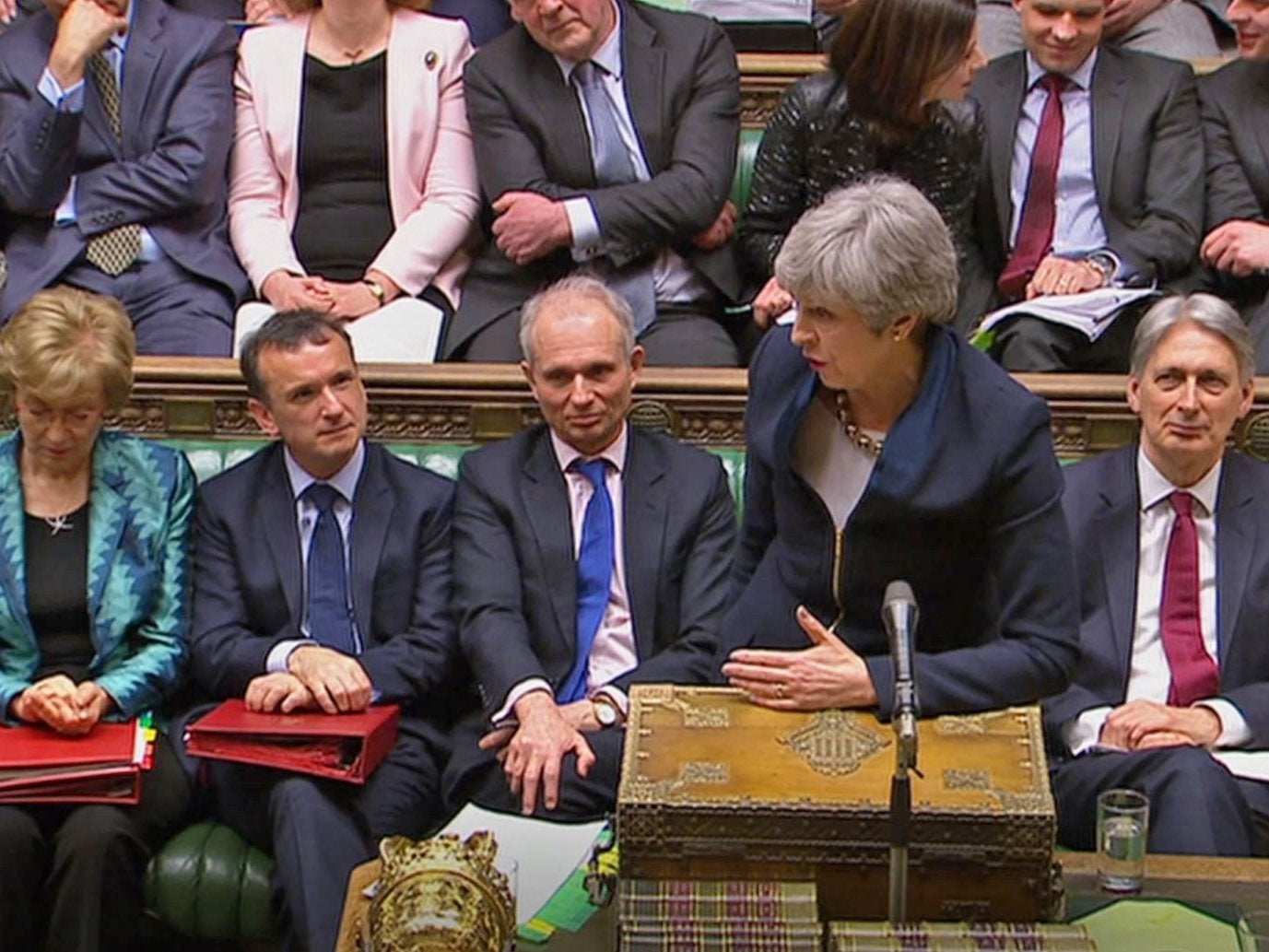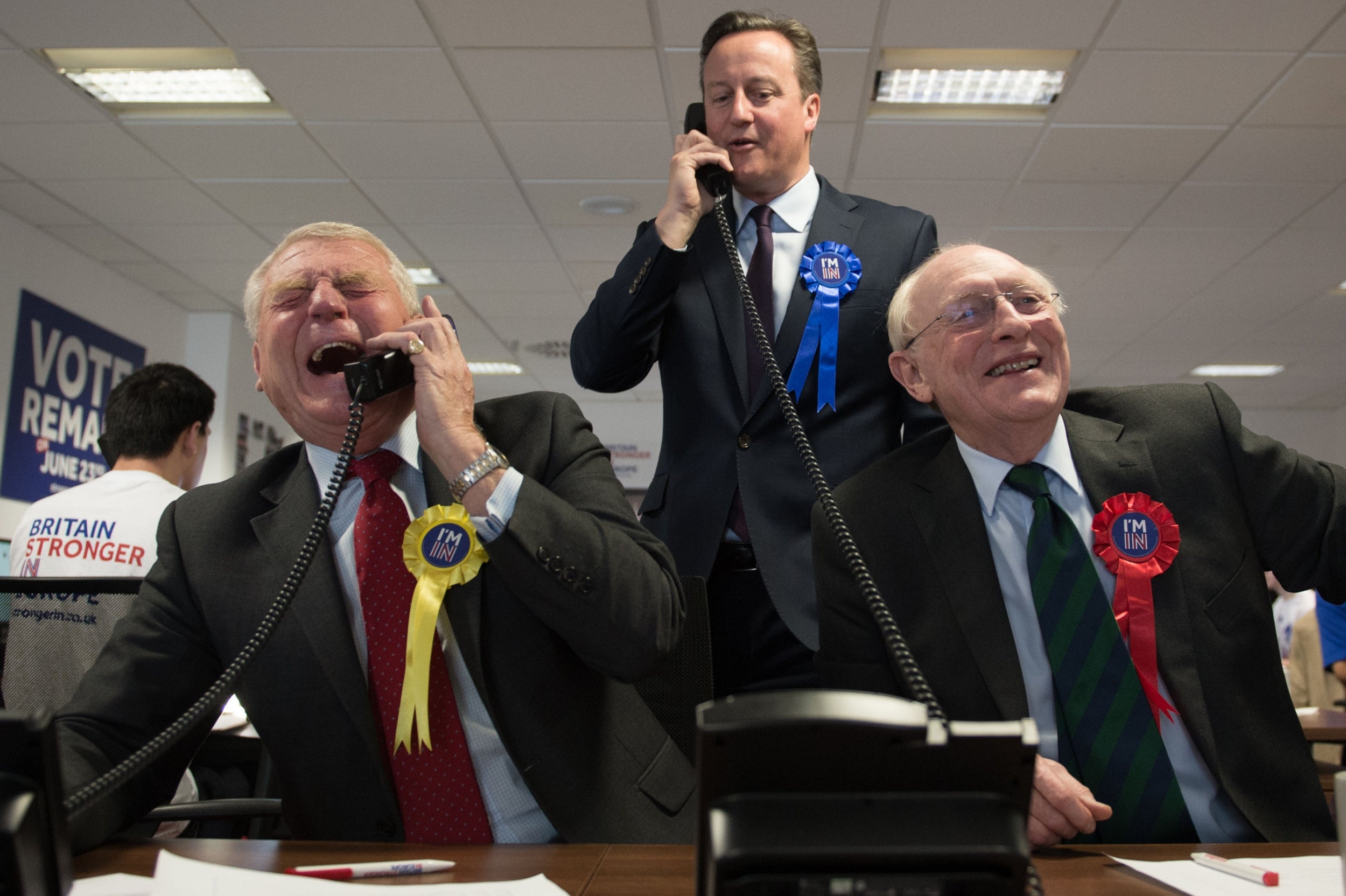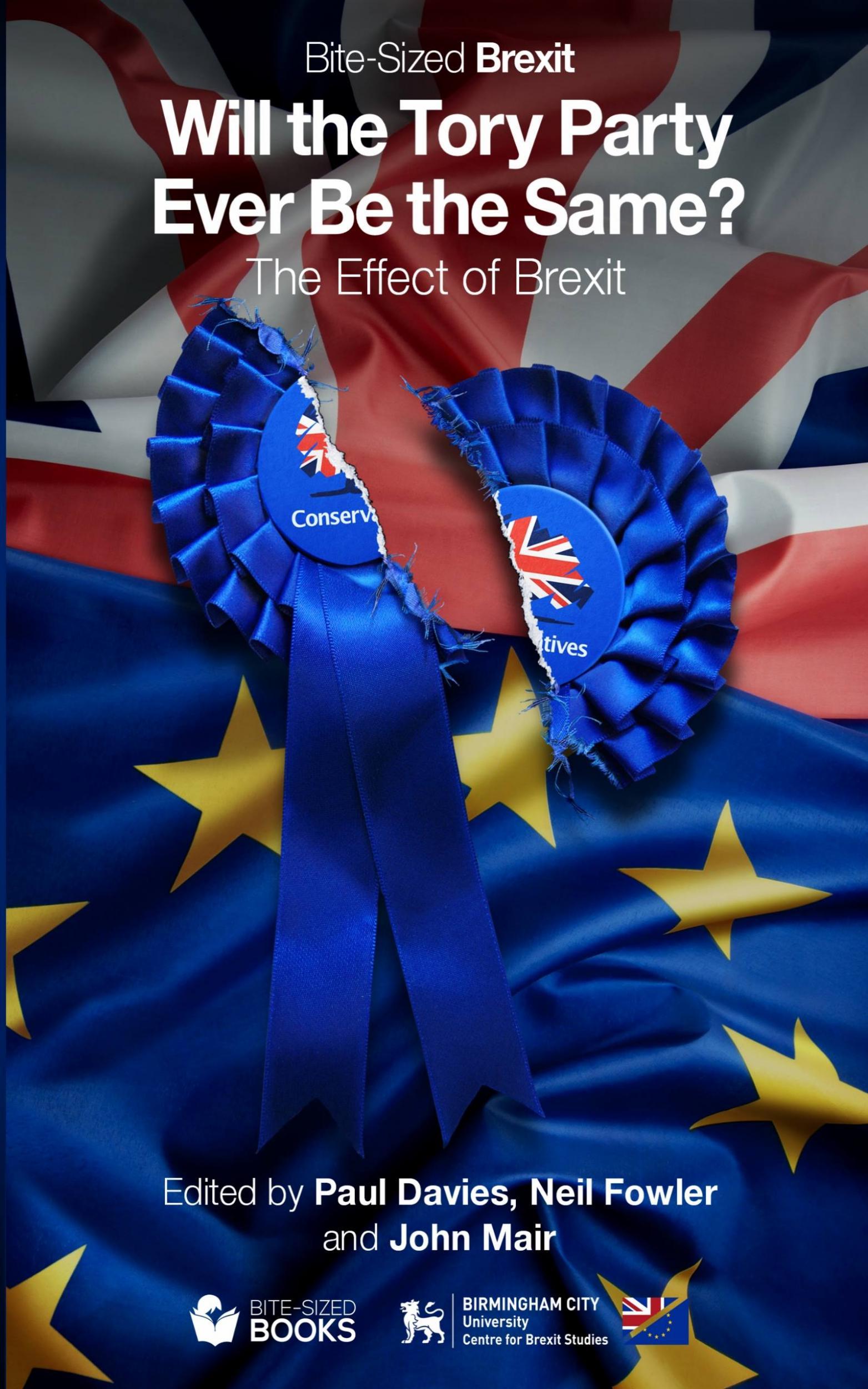The Independent's journalism is supported by our readers. When you purchase through links on our site, we may earn commission.
The Conservatives are stuck in a Brexit bedlam that they can’t seem to find a way out of
It’s all too easy for Tories to become grumpy pessimists, says former minister Damian Green. They’ve adapted to change before. They must do so again


The Parliamentary Conservative Party notoriously has two default settings: complacency or panic.
The pressure of the Brexit process has moved the dial significantly towards the latter, although one should never underestimate the capacity of Jeremy Corbyn’s leadership skills to encourage Conservatives into the former.
For anyone who thinks long-term, though, the departure of colleagues with stinging remarks about destroying the Conservative Party should be worrying. Almost the worst thing about the early days of the Independent Group was that the Labour defectors were clearly distraught about leaving their political home, while the Tory defectors looked exultant.
Is this the beginning of the end?
I strongly believe that it need not be, and indeed will not be as long as the post-Brexit Conservative Party pours as much energy into its domestic policies and widening its base as it has into European affairs.
Those who are apocalyptic about the party’s prospects need to take a step back. In the late 1990s it looked as though Conservatives were destined for extinction in Scotland and Wales. The party now has significant representation in both countries, allowing it once again to become the truly national UK-wide party it has always been.
Also over the last decade the party in parliament has begun to look much more like modern Britain in all its variety. It seems overwhelmingly likely that, just as the Conservatives were the first party to elect a woman leader, it will be the first party to elect one from a Bame background. Of course there is much more to do but the party has recognised the problem of looking and sounding too narrow and is taking effective steps to address it.
Before I seem to sink back into the mode of complacency I should acknowledge that real problems exist. The membership of the party is not even representative of Conservative voters, let alone the wider country. It is much smaller than it used to be. It is possible to exaggerate how much older the Conservative Party membership is than Labour’s, but it is still true that some 44 per cent of Conservative members are over 65, compared with 30 per cent for other parties.
There is also a whiff of intolerance in the air inside the party which is new and dangerous. Deselection is a word which in the past has only been associated with the unpleasant actions of the hard left of the Labour Party. If it becomes a habitual threat from the hard right of the Tory party it will signify a move away from being a party of government. It should be stamped out immediately.
But to address any of these long-term issues requires progress on Brexit, and then a move on to other matters. We all know that the Brexit vote represented a myriad of discontents, some of them shared across the west since 2008, and some specific to this country. What the Conservative Party needs to do is address the various sources of discontent.

This is more difficult than previously. In 2005, after our third election defeat in a row, I gave the Macmillan Lecture for the Tory Reform Group and observed that: “If the Conservative Party does not like modern Britain it is unlikely that modern Britain will warm to the Conservative Party.”
Much of that problem was solved by David Cameron and his modernisation programme. The current leadership faces the even more intractable problem that modern Britain no longer seems to like itself. The tone of political discourse ranges from the harsh to the disgraceful. Violent language is common. Disgracefully, and occasionally tragically, this spills over into physical violence.
If we are to move on from the current toxic politics the Conservative Party in its post-Brexit phase needs to lead the way, both in tone and content. The tone required is one of respect not just for each other and our varying views but for our political opponents as well. This is not easy.
The current Labour Party is determined to establish a false and unpleasant narrative: that the (necessary) period of austerity after 2008 means that every individual Conservative politician is complicit in creating poverty and misery and is therefore beyond the pale. It is very tempting to respond in kind, but this temptation should be resisted.
Raising the debate from the gutter is the right thing to do and will in the long run benefit those who do it, as long as the underlying discontents are addressed at the same time.
Long ago Rab Butler said he was keen to make it ‘perfectly possible to be literate, rational, well-informed and a Tory’. Today we should be equally keen to make it perfectly possible to be decent, compassionate, outward-looking and a Tory
Inevitably, after the financial crash of 2008 and subsequent global recession, there are no lack of problems requiring a hard-headed but warm-hearted solution, in the best tradition of One-Nation Conservativism. As we move out of the austerity period we have the chance to provide a mixture of targeted increases in public spending and tax cuts which will provide future prosperity both for the country and the party.
That chance will only come if there is a successful Brexit settlement which releases the large amount of stalled investment that has been waiting for certainty; but if and when this happens, the opportunities are huge.
In politics and economics maths is everything. If your economy grows at 2.5 per cent a year, you can afford to increase public spending, cut taxes, and have some left over to reduce long-term debt. If it grows at 1.5 per cent a year, which would probably be our fate if Brexit goes wrong, you don’t have enough flexibility.
Although sorting Brexit is therefore the first and overwhelming priority, the choices the party makes about where it concentrates next are key.
This is not the place for detailed policy blueprints, but the areas for activity are pretty clear. We need to meet the needs of those parts of the country which did not benefit from the finance-driven globalisation of the 1990s. The Northern Powerhouse was a good idea and needs to be made a reality. Coastal towns, and more generally medium-sized towns with no nearby big city, have special needs.
Away from the geographical concentrations of disadvantage which the government should address, the national challenges are equally clear.
The first tentative steps towards a revival of home ownership have been taken, but this ought to be much higher in the political mix. The unfairly neglected Industrial Strategy needs to be at the heart of what the government both does and talks about between now and 2022. If we get right our policy towards artificial intelligence, 5G, electric vehicles, and other new technology, then the effects of Brexit will be relatively small. The same is of course true on the downside.
If it is to meet present challenges, the party will need to retain, or in some cases regain, its sense of optimism. It is all too easy for Conservatives to become grumpy pessimists. That way lies irrelevance
This is not to neglect the traditional areas of policy dispute. Just as health now has a growing budget and a proper long-term plan, I would like to see education treated in the same way. By education I don’t just mean school and universities, but also the FE and apprenticeship sectors, which deserve more attention than ever before.
In social policy, I think grasping the nettle on social care funding should be the start of a much deeper process of rethinking our attitude to the over-60s to recognise the fact that people commonly live to be 90 or older and are fitter and healthier than ever before into their 70s. We should stop assuming that everyone over the age of 65 is frail and just wants a quiet life. Staying in the world of work is not just better for the economy, it is usually better for the individual.
There is no shortage of challenges, and happily no shortage of thinking about them. Both my colleagues in parliament, and centre-right thinktanks new and old, are fertile in creating policy ideas. For the country’s sake, these ideas need a successful political party to make them real. Far from being defunct, the Conservative Party is needed as much as ever to shape Britain in the post-Brexit world.
If it is to meet this challenge, it will need to retain, or in some cases regain, its sense of optimism. It is all too easy for Conservatives to become grumpy pessimists. That way lies irrelevance. It also needs to regain the mantle of the party that offers opportunity to all.
Millennials have been foisted with an unfair reputation as entitled snowflakes. They are having to cope with a fast-changing world of work which offers less security than their parents enjoyed, and a significantly more difficult route to settled prosperity in their own home. Most of them want that, and the political prize for offering it is huge.
These substantive policy areas will be much more likely to win first-time voters than any improvement to campaigning techniques on social media, necessary though they are.
At the same time, leading Conservatives need to take every chance to show that being a Conservative does not in some way mark you out from the rest of the country. Corbyn’s Labour Party is determined to pursue this idea, and it needs refuting. Long ago Rab Butler said he was keen to make it “perfectly possible to be literate, rational, well-informed and a Tory”. Today we should be equally keen to make it perfectly possible to be decent, compassionate, outward-looking and a Tory.
These various policy suggestions involve recasting some traditional Conservative values, including opportunity for all, home ownership and support for business, to make them fit for the mid-21st century.

This will allow the party to follow one of the wise points made by another Tory guru, Keith Joseph, in the 1970s, when he said that instead of the centre ground, politicians should seek the common ground. It is a subtle but important difference, in that it means that instead of triangulating between the existing extremes, you identify new areas of concern which the people may have reached before the politicians.
The Brexit vote showed that there was indeed a disconnect between political conventional wisdom and the desires of the British people. Throughout its history the Conservative Party has been sensitive to such changes, and adept at adapting to them.
It needs to do so again.
Damian Green has been the Conservative MP for Ashford since 1997 and was the first secretary of state and minister for the Cabinet Office from June to December 2017
This essay is extracted from ‘Will the Tory Party Ever Be the Same?’ edited by Paul Davies, John Mair and Neil Fowler, published by Bite-Sized Books and also available from Amazon
Join our commenting forum
Join thought-provoking conversations, follow other Independent readers and see their replies
Comments